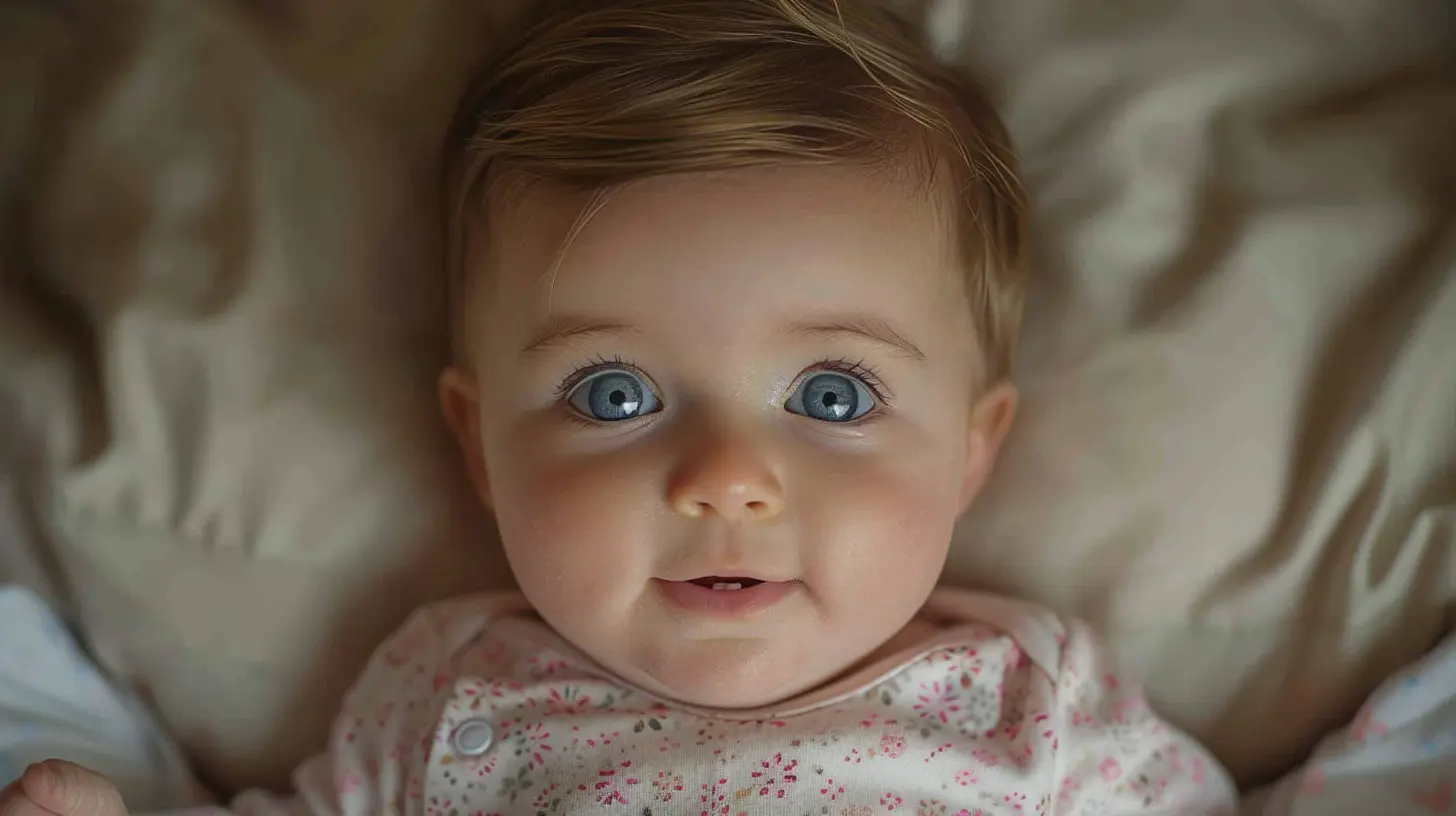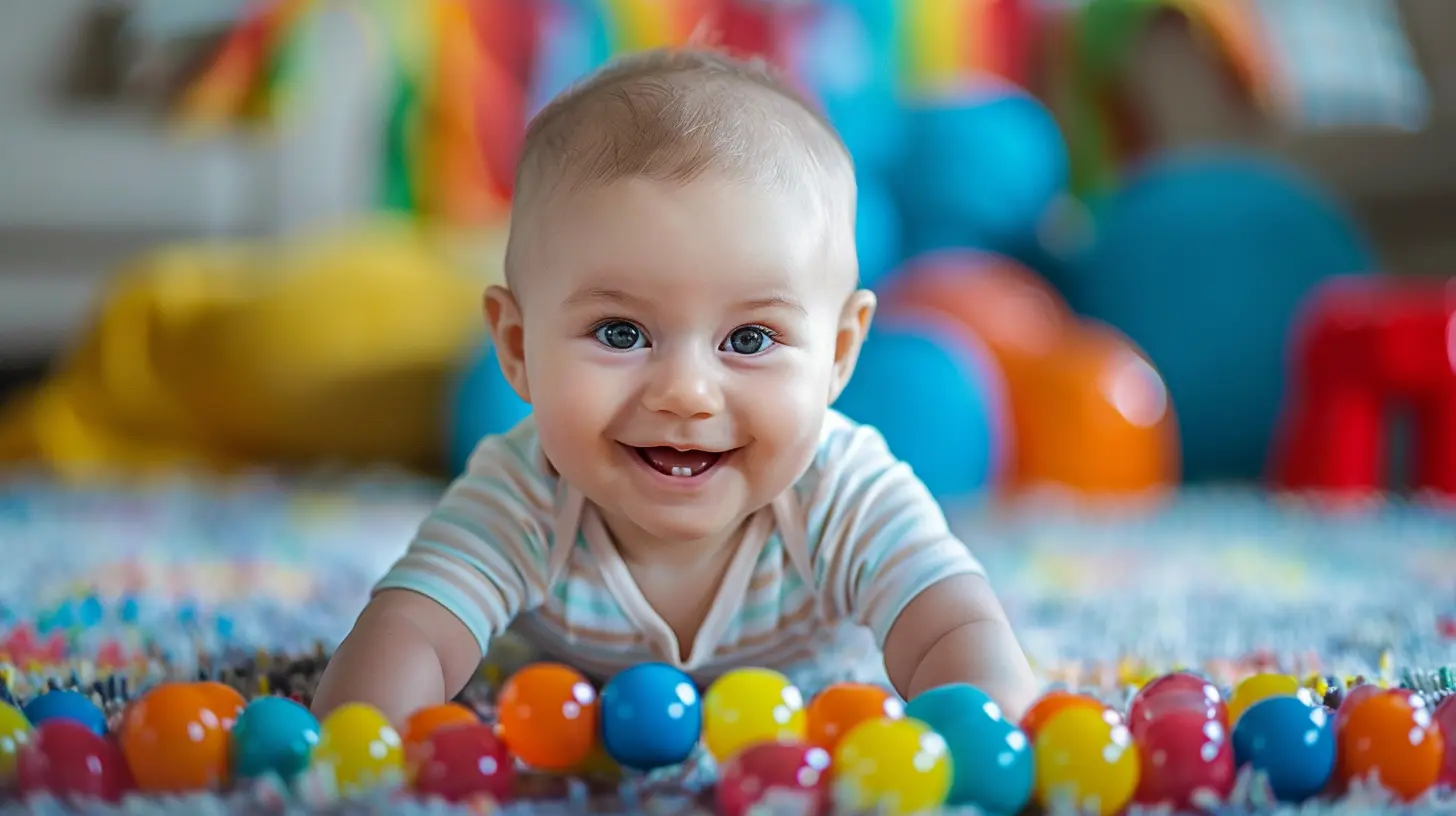How Sleep Patterns Impact Infant Growth and Learning
18 October 2025
Hey there, fellow parents! If you’ve ever stared at your newborn at 3 a.m. wondering if you’ll ever sleep again—or more importantly, if your baby is getting the right kind of sleep—you’re not alone. Sleep during infancy isn't just about giving mom and dad a break (though we’ll take it, right?). It’s essential for your baby’s development, affecting everything from physical growth to brain power.
So, brew that second cup of coffee and let’s dive into why those zzz’s are more than just rest—they’re magic!
Why Infant Sleep Isn't Just About Rest
Imagine sleep as your baby’s personal growth factory. While their tiny bodies snooze, behind the scenes there’s a flurry of activity going on—cells multiplying, the brain wiring itself, hormones surging. It’s not downtime. It’s go-time for development.Growth Hormones Work the Night Shift
One major player during infant sleep is the growth hormone—yep, it’s actually released primarily during deep sleep. When your baby gets into that rich, slow-wave sleep (also known as deep sleep), their body kicks into growth mode. It heals, grows, and builds up those cute baby rolls.Miss out on good sleep? That means less time in that critical deep sleep phase. And while one night of poor rest isn’t the end of the world, chronic sleep disruption can definitely slow down the growth process.
Brain Development and Baby Sleep: A Tight Connection
Ever noticed how your baby suddenly starts doing something new—like smiling, rolling over, or babbling—right after sleeping a lot? That’s not just coincidence. It’s science.Sleep Builds the Brain’s Architecture
During sleep, especially REM sleep (that’s the stage where dreaming happens), the brain is making connections like crazy. Neurons fire, memories form, and learning sticks. For infants, whose brains are developing at warp speed, this is huge.Think of REM sleep as the time when your baby’s brain is “saving” everything they picked up while awake. Every face, every sound, every new skill—it all gets stored and processed while they sleep.
Language Skills? They Start in Dreamland
Believe it or not, babies start tuning into speech patterns while they sleep. Research has shown that infants’ brains are actively processing language sounds even during naps. Wild, right? Even when you think they’re zonked out, their brains are doing homework.
The Sleep–Learning Cycle: One Fuels the Other
Want your baby to hit those milestones on time (or even early)? Support their sleep. Learning and sleep are a two-way street. Good sleep = better learning. Better learning = more mental stimulation = better pressure for restful sleep. It’s a beautifully balanced cycle.Memory Consolidation Happens at Nap Time
Every time your baby practices a new skill like tracking a moving object or reaching for a toy, their brain records the experience. But the real magic happens when they nap afterward. That’s when the brain files those experiences into long-term memory.Without sleep, that information just sort of... floats away. It doesn’t get stored efficiently. Think of sleep as hitting the "Save" button on your baby’s brain computer.
Naps Aren’t Optional—They’re Essential
Some parents think naps are just about getting through the day, but honestly? They’re a non-negotiable. Infants don’t just sleep because they’re tired—they sleep because their brains demand it for proper development.
Sleep Patterns Change—and That’s Okay
Let’s be real: infant sleep is anything but predictable. One night they’re sleeping six hours straight (hallelujah!), and the next night they’re wide-eyed every 90 minutes. It’s tempting to wonder, “What the heck am I doing wrong?”Don’t beat yourself up. Shifts in sleep patterns are normal and often tied to developmental leaps.
Newborns: Sleep Like It’s Their Job
In those early weeks, newborns sleep anywhere from 14 to 17 hours a day, but in short bursts—usually two to four hours at a time. That’s because their sleep cycles are much shorter than ours. They’re still adjusting to life outside the womb.And don’t forget, newborns don’t know the difference between night and day yet (wouldn’t that be nice?). That’s why their sleep seems random.
3 to 6 Months: Starting to Settle In
Around the 3-month mark, your baby starts developing circadian rhythms. That means longer nighttime stretches and more predictable naps. Hallelujah! This is also when sleep starts to consolidate—aka, longer, deeper periods of snoozing—giving both you and baby more rest.6–12 Months: Sleep Regressions, Oh Joy!
Just when things settle, a regression hits. These usually align with developmental milestones like crawling or standing. Their sleepy little brains are just too excited to shut off! While frustrating, it’s a sign that their brain is leveling up.Common Infant Sleep Disruptors (and How to Handle Them)
Sometimes, babies struggle with sleep just like adults. Here are a few common culprits and what you can do:Overtiredness
Weirdly, the more tired a baby gets, the harder it is for them to fall asleep. That’s because their body pumps out stress hormones like cortisol once they’re past their sleepy window. You know that frantic, wild-eyed baby flailing like a fish out of water? Yep—overtired.Try this: Watch for sleep cues—yawning, rubbing eyes, losing interest in toys—and get them down before they become overtired.
Hunger
Especially in the first few months, wake-ups are often tied to hunger. Those tiny tummies can’t hold much, so they need to refuel often.Try this: Maintain a flexible but consistent feeding schedule during the day to reduce frequent night waking caused by hunger.
Development Jumps
Milestones like crawling, pulling to stand, or babbling like a tiny professor can mess with sleep. Their brains and bodies are so busy learning that it’s hard to shut down.Try this: Don’t stress. Stick to your bedtime routine, and know it’s temporary.
Creating Healthy Sleep Habits From the Start
Good sleep hygiene isn’t just for adults. The earlier your baby gets used to a calm, consistent sleep routine, the better.Set a Consistent Bedtime Routine
Babies thrive on predictability. A short, soothing routine—bath, lullaby, feeding, snuggles—signals it’s time for bedtime. It doesn’t have to be fancy, just consistent.Encourage Day/Night Differentiation
Let plenty of natural light in during the day and keep nighttime as dark and boring as possible (no playing, no bright lights, minimal talking). This helps set their internal clock.Create a Sleep-Friendly Environment
Keep the nursery cool, quiet, and dark. Use white noise if needed, and dress your baby in breathable layers.How Much Sleep Do Infants Really Need?
Here's a general breakdown (but remember, every baby is different!):| Age | Total Sleep (24 hrs) | Naps |
|-----|-----------------------|------|
| 0–3 months | 14–17 hours | All over the place |
| 4–6 months | 12–16 hours | 2–3 naps |
| 6–12 months | 12–15 hours | 2 naps |
| 1–2 years | 11–14 hours | 1–2 naps |
The key is not just how much sleep they get—but how good that sleep is.
When to Talk to a Pediatrician
Sometimes, sleep problems go beyond the norm. If your baby:- Snores loudly or has irregular breathing during sleep
- Rarely sleeps more than an hour at a time
- Seems excessively sleepy, even when well-rested
- Isn't growing or hitting developmental milestones
It’s worth bringing up with your pediatrician. Better safe than sorry.
Final Thoughts: Rest is the Real MVP
So, what’s the big takeaway? Sleep isn’t just a downtime activity for babies—it’s prime time for growth, learning, and brain development. Those hours spent snoozing are just as important as tummy time, playtime, or story time.If your infant’s sleep is a little chaotic right now, don’t panic. It will stabilize. Keep supporting healthy patterns, listen to your baby’s cues, and know that every nap is a step toward a brighter, brainier future.
Now if only we could get a nap too, right?
all images in this post were generated using AI tools
Category:
Infant DevelopmentAuthor:

Maya Underwood
Discussion
rate this article
1 comments
Blair Walker
Understanding the link between sleep patterns and infant growth is crucial for parents. Adequate rest supports cognitive development and physical health, laying a strong foundation for future learning.
October 21, 2025 at 4:40 AM

Maya Underwood
Thank you for your insightful comment! Understanding the connection between sleep and infant growth is indeed vital for fostering healthy development.


